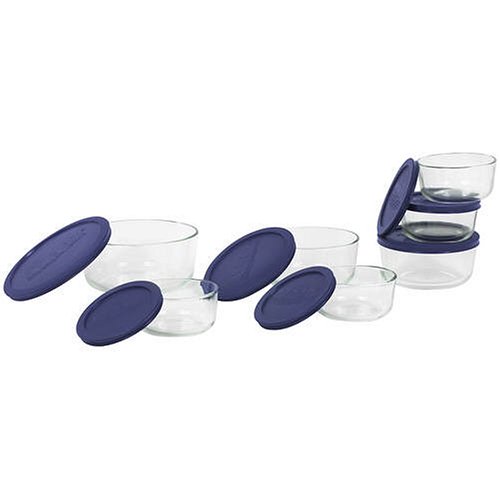Sunday, August 22, 2010
Video of the Week: Eggs!
Another way you can protect yourself is by purchasing your eggs from a small producer that you know and trust. This is definitely not an option for everyone. These eggs are harder to find and usually at least twice as expensive. Small flocks are less likely to be contaminated with salmonella. I buy farm fresh eggs when I can from different sellers at the Riverside Farmer's Market in Roswell. So far, I haven't had a bad egg from any of the sellers.
And of course, if you live in a place that allows it, you can always try your hand at raising your own laying hens. You'll have to check your local laws about it. And please, think of your neighbors. Chickens can be noisy and smelly. Your neighbors might not appreciate your feathered friends.
And this isn't even getting into the differences between cage free, humanely raised, organic, or omega-3 enhanced eggs, which is a discussion for another time.
There are other benefits to farm raised eggs, which are covered pretty well in today's video link from Simply: Home Cooking. Liza posts a great run down of fresh egg options in her city (Ann Arbor, MI) and gives us a great video that vividly illustrates the differences between conventionally produced eggs and the ones you get from a farmer. So click through to the article and enjoy the video.
Sunday, June 21, 2009
Neslte is the very best...e. coli
Monday, December 22, 2008
Tuesday, July 29, 2008
"Don't ask where hotdogs come from, kid"
My husband was surprised the other day when I mentioned that fast food hamburgers don't come from beef cattle. They come from dairy cattle that's stopped producing milk. I don't know why this horrified him so, but it did. It started a conversation about practices in the meat industry that are even worse, such as feeding the cows ground up bone meal from other cows, de-beaking chickens so they don't peak each other to death in crowded cages, etc. The horrors go on, but I won't.
This swimming pool tastes like...chicken?
In any case, the chlorine won't make your bird smell or taste like a swimming pool. Since the mid-1990s, when nationwide E. coli and salmonella scares prompted the U.S. Department of Agriculture to establish strict microbiological regulations for the meat and poultry industry, the chemical has become a popular agent for disinfecting chickens. After birds are killed, defeathered, and eviscerated, the carcasses are chilled in massive bathtubs to prevent bacterial buildup. Chemical disinfectants—in about 80 percent of cases, that's chlorine—are added to the water to reduce cross-contamination and stem further bacterial growth. Chlorinated solutions may also be used in the evisceration process as well as during online reprocessing, during which traces of fecal matter are power-washed away.
Now doesn't that sound yummy?
Thursday, June 19, 2008
Pyrex

Last week, we ordered a set of Pyrex containers from amazon. I don't know how it is in your house, but I assume it's like ours. We're constantly buying resealable plastic containers, and losing them. We got a set of Rubbermaid containers for a wedding present five years ago, and have lost everything but one container and two lids. Most of our containers now are of the Gladware variety.
Reusable containers, especially small ones are a big deal for me. I always try to pack a waste free lunch to take to school with me. So if I can't find enough containers to pack my lunch in, I get rather cranky. This is widely considered to be a bad thing.
The Pyrex containers are very pretty. Once I had them out of the box, I realized that they have a slight blue tint to the glass. None of my other Pyrex has this, so I assume it's something new. Even the small ones seem too heavy and bulky to fit in my Vera Bradley lunchbox (Designer lunchboxes? Where did I wrong in life?) I plan to use them mainly at home, to free up the lighter plastic containers for me to tote back and forth. I also like them, because I think my husband will be less likely to look at the dirt containers and say "Screw it." and throw them out rather than clean them out for me.
There's been considerable recently about plastic containers leaching chemicals into food. I'm not one hundred percent sold on that one yet. However, if I can reduce a possible health risk and use a pretty, reusable container, why not?
Tuesday, June 10, 2008
Tomatoes
This makes me very glad of two things. One, I'm growing my own tomatoes this summer. I know mine are safe, both from pathogens and pesticides. Two, that the city of Roswell has opened up a Farmers Market in Riverside Park on Saturdays.The U.S. Food and Drug Administration has alerted consumers that the outbreak of salmonella contamination seems to be linked with certain types of raw red tomatoes and products containing these tomatoes. In particular, the agency said, raw red plum tomatoes, raw red Roma tomatoes and raw round red tomatoes should be avoided at this time.
Cherry tomatoes, grape tomatoes, home-grown tomatoes and tomatoes sold with the vine still attached appear to be safe. But all tomatoes should be washed before eating, officials advised.
The FDA recommends consuming raw red plum, raw red Roma or raw red round tomatoes only if grown and harvested from these areas: Alabama, Arkansas, California, Georgia, Hawaii, Louisiana, Maine, Maryland, Minnesota, Mississippi, New York, Nebraska, North Carolina, Ohio, Pennsylvania, South Carolina, Tennessee, Texas, West Virginia, Belgium, Canada, the Dominican Republic, Guatemala, Israel, the Netherlands and Puerto Rico.